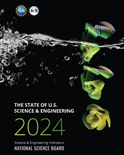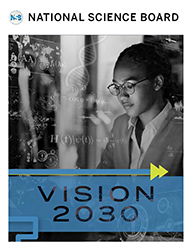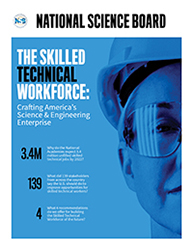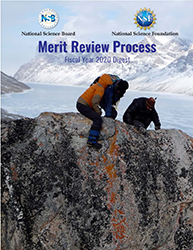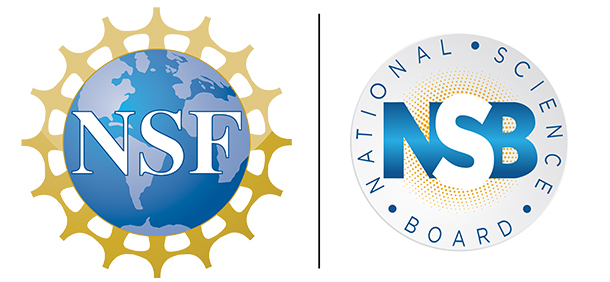
NSF's National Science Board to hold next skilled technical workforce listening session in South Carolina
Board 'listening sessions' designed to understand educational gaps in building next generation of skilled technical workforce

Florence Darlington Technical College, Southeastern Institute of Manufacturing Technology (Credit and Larger Version)
September 19, 2018
The National Science Board (NSB) will hold its next “listening session” at Florence-Darlington Technical College in Florence, South Carolina. Board members will hear the insights of the local community on challenges and opportunities related to the skilled technical workforce--individuals who use STEM capabilities in their jobs but do not have a bachelor’s degree.
The goal for this event is to add to the Board’s broader understanding about an issue of great interest to the National Science Foundation (NSF) as well as to Congress, the Administration, the science and engineering community, and other stakeholders.
“These listening sessions give the Board a chance to learn about different types of community colleges that serve diverse populations and industries across America,” said James Jackson, chair of NSB’s External Engagement Committee and psychology professor at the University of Michigan. “Learning from a range of individuals gives us valuable insights that inform the Board’s thinking about how to foster growth and development of the nation’s skilled technical workforce.”
NSB is NSF’s governing board and advises Congress and the President on science policy issues. NSF is the only federal agency to support fundamental research and education across all fields of science and engineering.
According to NSF’s Science & Engineering Indicators 2018 report, South Carolina has a slightly lower percentage of people working in technical occupations -- about 1.2 percent -- compared to the national average of 1.4 percent. South Carolina is one of 14 states plus the District of Columbia that performs between $1-$5 billion per year in research and development (R&D). Annual state performance in R&D varies considerably, from $253 million in Wyoming to $125 billion in California. R&D spending is a driver of innovation. Investing in science and technology today has ripple-effect benefits throughout the economy over the long term.
“NSF has invested in the basic research, assisted in the commercialization of technological inventions, and fostered growth to a point that NSF is now involved in thinking about and helping to shape, the education of the workforce needed to evolve these industries,” said Victor McCrary, chair of NSB’s Skilled Technical Workforce Task Force and a member of the NSB. “These nationwide listening sessions help the Board learn about which partnerships work between business and educational institutions and where the Board can bridge the educational gap to help fill in-demand, high-paying, skilled, technical jobs across the country.”
Florence-Darlington Technical College is a publicly funded and community-based higher education institution and home to the NSF-funded South Carolina Advanced Technological Education (SCATE) National Resource Center, dedicated to expanding excellence in technical education. It is one of 42 Advanced Technological Education Centers in the United States.
In conjunction with NSB’s listening session, SCATE will host an industry consortium workshop and convening the following day with the Southeastern Institute of Manufacturing Technology (SiMT). The workshop will focus on funding opportunities for small business through the SBIR Small Business Technology Transfer (STTR) program. Board members will have the opportunity to engage with start-up entrepreneurs and local government officials working to provide an environment that fosters growth and success among small tech business community in South Carolina. Consortium participants include the regional industry, South Carolina Department of Commerce, the South Carolina Research Authority, and the technology incubator community at FTDC.
WHAT: An event seeking local insights into workforce issues to catalyze and inform discussions about essential components of the nation's economy.
WHEN: Wednesday, September 26th at 1:30 p.m. (NSB Listening Session)
Thursday, September 27th at 8:00 a.m. (workshop)
WHERE: Florence-Darlington Technical College, SiMT in Florence, South Carolina
WHO: NSB members and business leaders are among a diverse group of stakeholders, spanning industry, chambers of commerce, local and state government, educational institutions and students
About SCATE
SCATE, a National ATE Center for Expanding Excellence in Technician Education since 1994, is a well-established and widely connected NSF-funded initiative housed at Florence-Darlington Technical College. Its resources support the development of a highly skilled technician workforce in engineering, manufacturing, and industrial technologies via faculty development and mentoring, problem-based learning, research, evaluation, and student scholarships and internships. SCATE provides the nation’s only online service that proactively connects educators to relevant professional development. For more information see SCATE websites: www.scate.org, www.TeachingTechnicians.org, and www.Mentor-Connect.org.
About NSB
The National Science Board and the National Science Foundation director jointly head NSF. NSB identifies issues critical to NSF's future and establishes the Foundation's policies. The NSB also provides the President and Congress with Science and Engineering Indicators, a biennial report on U.S. progress in science and technology. Members are appointed by the President for six-year terms and selected for their eminence in research, education and records of distinguished service.
Media contact: Kim Silverman, ksilverm@nsf.gov, 703-292-4515
Useful NSB Web Sites:
Home Page: http://www.nsf.gov/nsb
Media Contact: http://www.nsf.gov/staff/staff_bio.jsp?lan=nlymn&org=NSF
News: http://www.nsf.gov/nsb/news
Meetings: http://www.nsf.gov/nsb/meetings
Publications: http://www.nsf.gov/nsb/publications
Facebook: https://www.facebook.com/NationalScienceBoard
Twitter: Twitter: https://twitter.com/intent/user?screen_name=NSF_NSB
YouTube: https://www.youtube.com/channel/UCkrHRzuGSrPp2haQs0T_Pww
To view PDF documents, please download Adobe Acrobat Reader.
